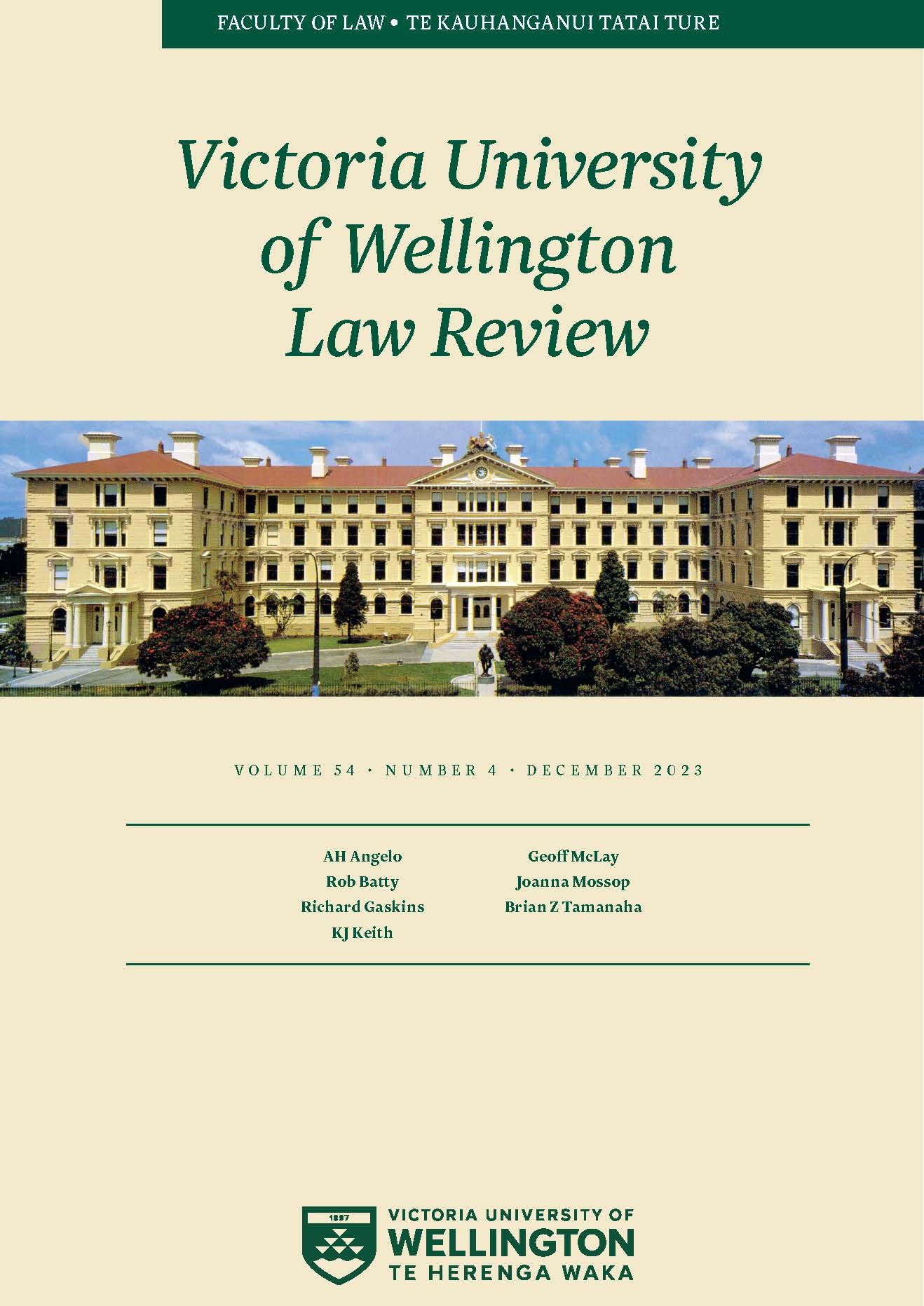Other Special Circumstances and the Registration of Trade Marks
DOI:
https://doi.org/10.26686/vuwlr.v54i4.9367Abstract
Under s 26(b) of the Trade Marks Act 2002 (the 2002 Act), where "other special circumstances" exist and it is considered "proper", a trade mark application may be registered despite its conflicting with an existing trade mark. What amounts to "other special circumstances" is not defined in the 2002 Act, and the exception has not been subject to detailed judicial consideration. This lacuna creates challenges for applicants, their advisers, the Intellectual Property Office and the courts. In this article, by considering the text, context and historical purpose of such an exception, I argue that the provision should be understood as a mechanism to grant registration where this would avoid injustice because of the existence of out-of-the-ordinary circumstances faced by the trade mark applicant or which relate to the position between the trade mark applicant and the owner of a conflicting registration. A wide range of circumstances may be deemed "special" under s 26(b). However, I suggest that evidence of prior use per se and without more does not and should not automatically fall within the exception. Further, adjudicators should continue to approach the exception cautiously and narrowly to ensure it does not undermine other core tenets of New Zealand's trade mark system.
Downloads
Downloads
Published
How to Cite
Issue
Section
License
Authors retain copyright in their work published in the Victoria University of Wellington Law Review.


